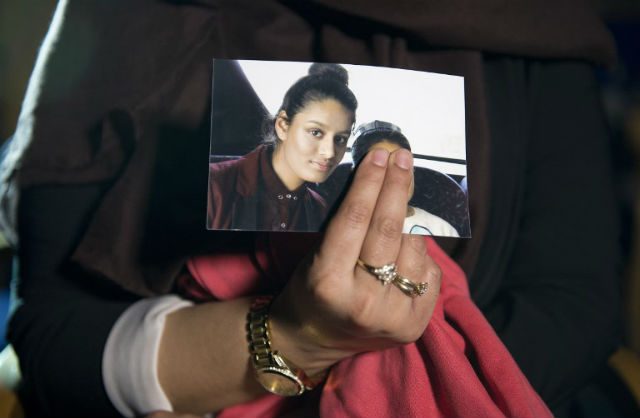SUMMARY
This is AI generated summarization, which may have errors. For context, always refer to the full article.

LONDON, United Kingdom – Britain’s decision to revoke the citizenship of a teenager who traveled to Syria to join the Islamic State group has raised a series of complex legal questions. (READ: ISIS teen ‘shocked’ after UK revokes her citizenship)
British law prohibits a country from making a person stateless, unless the individual is a naturalized British citizen and eligible for a different nationality.
The teen, Shamima Begum, is of Bangladeshi descent and Dhaka has said she “is a British citizen by birth and has never applied for dual nationality with Bangladesh.” It did not say whether she would be eligible. (READ: UK teen who joined ISIS has given birth in Syria – family)
The British government this week said that 150 people have had their citizenship revoked since 2010.
Following are answers to several questions on the issue.
Can Britain make someone stateless?
British law states that the government cannot strip a person’s citizenship if “the order would make a person stateless.”
But, under a change to the law in 2014, Britain retains the right to do so in cases of naturalized citizens deemed to have acted “in a manner seriously prejudicial to the vital interests of Her Britannic Majesty.”
For this to happen the interior minister must have “reasonable grounds for believing that the person is able, under the law of a country or territory outside the United Kingdom, to become a national of such a country or territory.”
Begum is believed to be a British citizen by birth, not naturalized, but she could face complications if her parents’ immigration status was not settled at the time of her birth.
Could Begum be Bangladeshi?
According to Bangladeshi law, a person “shall be a citizen of Bangladesh by descent if his father or mother is a citizen of Bangladesh.”
This would mean that Begum would automatically be a Bangladeshi citizen if either of her parents was born in Bangladesh, but this has not yet been confirmed.
Pre-2009 the law only applied if a person’s father was born in the country, so if only her mother was born in Bangladesh, it could be argued that she does not have citizenship.
What could be Bangladesh’s argument?
Bangladesh argues that the 19-year-old is not a citizen.
Immigration lawyers have said Begum’s birth would have had to be registered at the Bangladeshi Consulate in Britain in order for her to be one.
However, the law states that this requirement only applies to people whose parents were not born in Bangladesh, and are only tied to the country ancestrally.
If neither of Begum’s parents was born in Bangladesh and received citizenship through their parents, or were not registered as descendants, then Shamima is not a Bangladeshi citizen.
Is there any precedent?
The British government lost a similar case last year when it tried to strip citizenship from two men, one of whom was born in Bangladesh, the other having parents born in the country.
The court agreed that both men were dual British-Bangladeshi citizens until the age of 21, when another Bangladeshi law kicked in stating that they could not keep dual citizenship without having applied to the Bangladeshi authorities.
As Begum is only 19, she may automatically qualify for dual citizenship.
What about her baby?
Although born in a Syrian refugee camp, Begum’s infant son was delivered before the mother was told of the decision to revoke her citizenship, and is therefore British and has a right to return. – Rappler.com
Add a comment
How does this make you feel?





There are no comments yet. Add your comment to start the conversation.